
INTERNATIONAL HUMAN RIGHTS DAY IN MONTENEGRO
10/12/2024ANALYSIS OF THE MONTENEGRO JUDICIARY – VISIBLE STEPS FORWARD, BUT ALSO MANY OBLIGATIONS
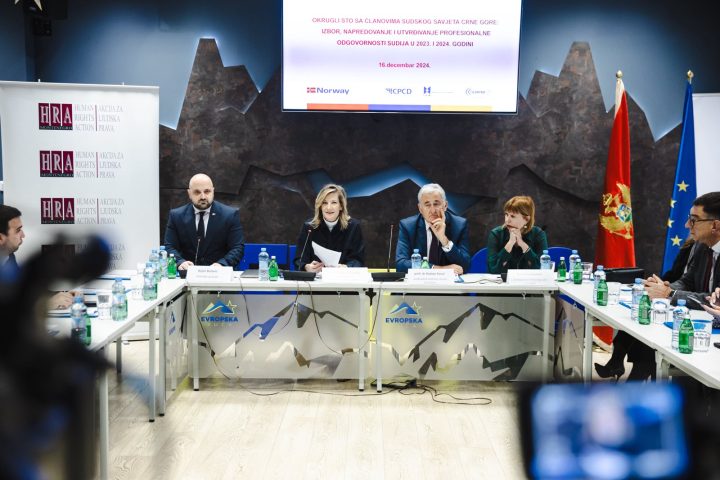
The analysis titled “Selection, Advancement, and Accountability of Judges in Montenegro in 2023 and 2024”, conducted by the NGO Human Rights Action (HRA), sheds light on a troubling state of affairs within Montenegro’s judiciary, while also recognizing some strides made in recent times.
Tea Gorjanc-Prelević, the Director of Human Rights Action, points out an important shift: judges in Montenegro are now ‘selected and promoted based on a ranking list, according to criteria and sub-criteria,’ a change from previous years.
She remarked, ‘We have reached a modern version of the Judicial Council, equipped with a frequently updated website, which conducts interviews and selects judges without scandal’. However, Gorjanc-Prelević urged that it is vital for the Judicial Council to swiftly fulfill the European Commission’s expectations, particularly in the context of Montenegro’s ongoing EU accession process. This entails cultivating a judiciary that is transparent, timely, independent, accountable, and resilient against political and other undue influences.
Gorjanc-Prelević further stressed the significance of lessons learned from Chapter 31, which remains open despite numerous expectations, indicating that EU accession cannot be taken for granted. She cautioned that the negative atmosphere fostered by political actors could turn any oversight into a potential delay for joining the European Union. It is crucial, she stated, that the Judicial Council does not give rise to a single such reason.
In the HRA analysis covering the period from early 2023 to November 2024, it was reported that 51 judges have left their posts. During this same timeframe, 50 judicial candidates were selected and sent for training, 46 judges appointed, 16 judges advanced to higher courts, and 12 court presidents elected. However, the report criticized the Judicial Council for its failure to conduct selection procedures for judicial candidates in a timely manner. On average, the process took six months from the job vacancy announcement to the beginning of training, followed by another four months after training before candidates were formally appointed as judges.
The HRA report asserts that ‘this delay has significant consequences given the chronic shortage of judges in Montenegro’s judiciary’. To combat this issue, it emphasizes the need to implement temporary assignments of judges to courts burdened with substantial case backlogs and recommends introducing new incentives to encourage such assignments.
The President of the Judicial Council, Radoje Korać, openly welcomed the criticisms directed at the Council’s operations. He acknowledged the significant challenges in filling judicial vacancies, particularly in light of dwindling interest in these positions when compared to previous years. “We don’t have a robust pool from which to select judges. There isn’t a wide choice. We often find ourselves choosing only those who have applied because they meet the minimum requirements, and sometimes fewer candidates apply than are needed”, Korać explained. To mitigate the risk of court paralysis, he proposed the introduction of substitute judges.
Korać elaborated, “These judges would be similar to regular judges but would be obligated, under the decision of the Judicial Council, to be temporarily assigned to courts experiencing a shortage of judges for a specified period. After 15 or 20 years of such service, they would have the right to choose a permanent position in a court of their preference”. He noted that implementing this proposal would necessitate legislative changes and that the state would need to provide housing for these judges.
Miodrag Iličković, a member of the Judicial Council, concurred with Korać’s viewpoint, stating, “We ask ourselves—is this expensive? The most expensive scenario is when there are no judges. That is the most costly. Therefore, we need to think about these solutions”.
Contrastingly, Vladimir Čejović, a lawyer and representative of the Bar Association of Montenegro, suggested an alternative approach. He advocated for recruiting judges from misdemeanor courts to serve as replacements in higher courts.
“The Misdemeanor Law is essentially a ‘mini–Criminal Procedure Code’ today… So, perhaps it would be wise to consider this pool, which is currently missing”, Čejović proposed.
Mirjana Popović, President of the Court of Appeals, raised a cautionary note against overlooking judicial hierarchies, arguing that such actions could demotivate judges in higher courts. Instead, she championed the idea of “opening up” Montenegro’s judiciary.
“This could be done by allowing lawyers from other professions to apply for positions in higher courts, the Court of Appeals, and the Supreme Court. I believe we have excellent legal professionals in the bar, the NGO sector, and the private sector who could significantly contribute to the work of the courts”, Popović concluded.
The analysis by HRA also highlighted issues of transparency, indicating that not all decisions by the Judicial Council regarding judge promotions were sufficiently justified. A similar lack of clarity was noted in the process of appointing court presidents.
Judge Vesna Kovačević, from the Special Department of the High Court in Podgorica and a candidate for the Court of Appeals, voiced her concerns about leaving unresolved cases for successors during promotions. “We cannot allow cases inherited from senior colleagues, which have been brought to the brink of resolution, and which we ourselves have almost finalized, to be left to a third judge. This would be deeply unfair to the defendants and undermine the integrity of the judicial process”, she stressed.
The significance of conducting trials within a reasonable timeframe was underscored by Valentina Pavličić, the newly elected President of the Supreme Court. Echoing concerns raised by international partners, she acknowledged the persistent issue of significant case backlogs within Montenegro’s judiciary.
“There are many challenges and problems, but we have taken them on. We will address them rather than allowing them to pile up or be deferred for another time. In this regard, I foresee and expect logistical support from the other two branches of government. Each must, within its own competencies, provide what is necessary for Montenegro’s judiciary to deliver justice in a reasonable timeframe”, stated Pavličić. She further reiterated the importance of resisting any form of external pressure on the judiciary.
“We must return trials to courtrooms. They should not be the subject of debate in cafés, on roadways, or in political circles. Instead, we must demonstrate that judicial institutions are not fragile but stable, professional, and resistant to all forms of pressure, regardless of the source”, emphasized the President of the Supreme Court.
The HRA report highlighted numerous instances of external pressures during the analyzed period, predominantly of a political nature, but also included verbal attacks and threats directed at judges, ultimately undermining the integrity and independence of the judiciary. “Particularly troubling are the reckless political attacks by high-ranking state officials on the judiciary. The Judicial Council has responded on several occasions to such incidents, but there have also been instances where it failed to react or responded with delay”, the analysis stated.
In a positive turn, Judicial Council member Rade Ćetković announced measures aimed at addressing these challenges. He revealed plans to establish a dedicated team that will respond promptly to critical situations, stating, “A protocol is being developed for the implementation of crisis communication guidelines. There will be a body responsible for monitoring the media landscape and responding in all situations deemed necessary. We believe this will speed up reactions and ensure they are timely”.
Justice Minister Bojan Božović emphasized that the issues plaguing the judiciary are not solely the judiciary’s concerns but also affect the legislative and executive branches. He took the opportunity to express his expectation of no longer serving as a member of the Judicial Council following amendments to Montenegro’s Constitution.
“We must continue, or further enhance, efforts to create conditions for more effective and higher-quality work. No one in this country can claim that the conditions are satisfactory, let alone good. We must acknowledge that there are numerous problems and challenges, but also recognize that most of these are inherited issues—not excuses for failing to resolve them”, Božović stated.
Ethical and Disciplinary liability
The HRA analysis critically examined the operational challenges facing the Commission for the Ethical Code of Judges, highlighting a significant period of inactivity that lasted for 20 months due to a lack of quorum. The Commission only resumed decision-making on cases dating back to 2022 and 2023 at the end of March 2024. Since its reactivation, it has resolved 21 cases, yet disappointingly, only two instances led to findings of ethical code violations. The HRA emphasized the necessity for the Commission to adopt a more objective approach when establishing facts, rather than depending solely on the original complaint and the statement of the judge against whom the complaint was filed.
Additionally, the analysis revealed that from the beginning of 2023 to November 1, 2024, there were ten disciplinary proceedings initiated, but judicial accountability was established in only one case, which had not reached a final decision as of December. Three disciplinary proceedings initiated in 2020 and 2021 were discontinued following the resignation of the judges involved, and five cases were initiated due to the same disciplinary violation—specifically, the failure to report assets and income. Notably, in none of these cases was judicial accountability established, despite the Agency for the Prevention of Corruption determining that all involved judges had violated the Law on the Prevention of Corruption by not providing accurate and complete information regarding their assets and those of their spouses.
Moreover, the Disciplinary Prosecutor and the Disciplinary Panel of the Judicial Council have continued to assert that a failure to report assets and income does not qualify as a disciplinary offense if it occurs only once, thereby arguing that it is not a repeated violation of the legal obligation. The HRA analysis criticized this interpretation, stating that it undermines the essential principle of accountability in the declaration of assets and income, creating an environment where even serious omissions in reporting valuable property may go unpunished as long as they occur only once.
This perspective calls for a reevaluation of the current disciplinary framework, as it potentially perpetuates a culture of impunity within the judiciary, undermining public trust in its integrity and effectiveness. The need for a robust interpretation of accountability in financial disclosures is paramount to restore confidence and ensure ethical adherence among judges.
Miodrag Iličković, a member of the Judicial Council, expressed astonishment at the “significant number of complaints about judges failing to declare assets” or providing inaccurate information. He asserted, “Judges are not uninformed individuals who might make such mistakes unintentionally. Decision-making practices need to change. It’s a delicate issue, but something must be done”.
Rade Ćetković, another Council member, emphasized that the primary goal of addressing disciplinary violations should be to target deliberate concealment of assets rather than penalizing judges for minor numerical errors in asset and income declarations.
“We should focus on matters of real significance to society, not minor oversights… For colleagues who fail to submit their reports due to technical errors or sheer irresponsibility, I have no sympathy”, said Ćetković, highlighting the need to prioritize more serious issues.
Maja Karas-Bošković from the Agency for the Prevention of Corruption pointed out that current legal provisions create an imbalance among public officials. She illustrated this by noting, “For instance, a decision might be submitted to the Judicial Council indicating that a judge failed to declare 15 shares in ‘Plantaže,’ even though these shares are worth less than €100. Meanwhile, another official who forgot to declare €800-€900 will be given a chance to correct their report. The law is not equal in this regard, and we have proposed amendments”. This reflects a systemic issue where financial disclosures are inconsistently addressed across different positions in the public sector.
The analysis further revealed that the existing complaints process lacks effectiveness in holding judges accountable for unlawful conduct. In two substantiated cases, accountability was not established because the judges had resigned, leading to the discontinuation of proceedings. Lawyer Veselin Radulović noted, “The judge avoided accountability despite having a notable backlog of cases in which legal deadlines were not met. There was no valid explanation for this. Ultimately, the Judicial Council initiated two proceedings, but this raises the issue of the court president’s accountability for tolerating such behavior despite being informed”.
Additionally, the report indicated a lack of clarity regarding when the Complaints Commission should adjudicate a complaint and when the Judicial Council should intervene. Judge Ćetković, who chairs the Complaints Commission, concurred, stating that the HRA report felt as if it had “read his mind.” He plans to propose necessary adjustments at the Commission’s forthcoming meeting to amend its Rules of Procedure, addressing the need for clearer delineation of competencies to improve the accountability framework within Montenegro’s judiciary.
The Human Rights Action (HRA) has recommended a more expedited process for resolving complaints submitted by citizens to the Judicial Council, which currently takes between four to six months. HRA has proposed that disciplinary proceedings be completed within a maximum timeframe of one year, rather than the existing two to three years. Such prolonged delays often risk cases becoming time-barred or judges retiring before a decision is reached.
Rade Ćetković emphasized that enhancing the efficiency of the disciplinary commission’s operations necessitates granting the disciplinary prosecutor greater autonomy, enabling them to serve as the sole authority capable of investigating complaints and initiating proceedings. He pointed out the current structure—where only a member of the Judicial Council can propose disciplinary actions—leads to a conflict of interest, comparing it to “a judge being both prosecutor and jury.”
“The Judicial Council proposed that the prosecutor be dedicated to their role full-time because professionalism is key to ensuring thorough, proactive, and efficient action”, Ćetković elaborated, highlighting the need for specialization in handling disciplinary matters.
Furthermore, he asserted that professionalization must extend to the Judicial Council itself, suggesting that its members should focus solely on Council duties. “Objectively, we’re giving our maximum effort, but when the results are laid out, it’s clear that this isn’t enough. That’s a fact,” acknowledged Ćetković.
He recognized the value of the HRA analysis in guiding the Judicial Council towards improving its practices and effectively communicating its needs to the executive and legislative branches of government. “This isn’t just the Council’s perspective, but also that of NGOs who objectively and impartially assess the situation,” he concluded, reinforcing the collaborative effort required to address the present challenges within Montenegro’s judicial system.
The draft report of Human Rights Action is available here. The report will soon be supplemented with information and conclusions from the round table and published in the “Publications” section.
The report was prepared as part of the project “Reforming the Judiciary for the Rule of Law”, which the HRA is implementing with the support of the regional project “SMART Balkans – Civil society for a connected Western Balkans”, implemented by the Centre for the Promotion of Civil Society (CPCD) with partners, and financially supported by the Ministry of Foreign Affairs of the Kingdom of Norway.
Photograph: Filip Roganović















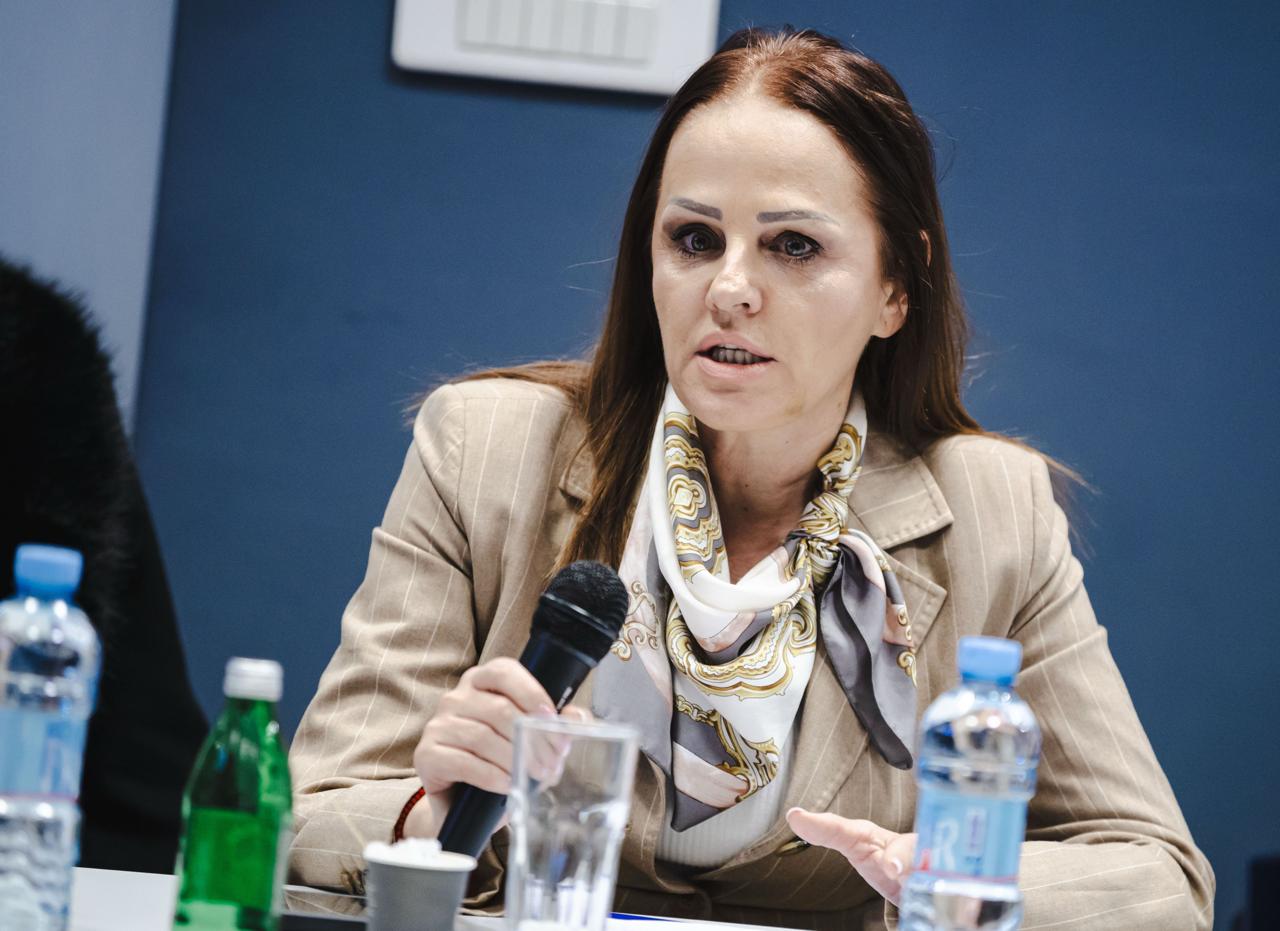



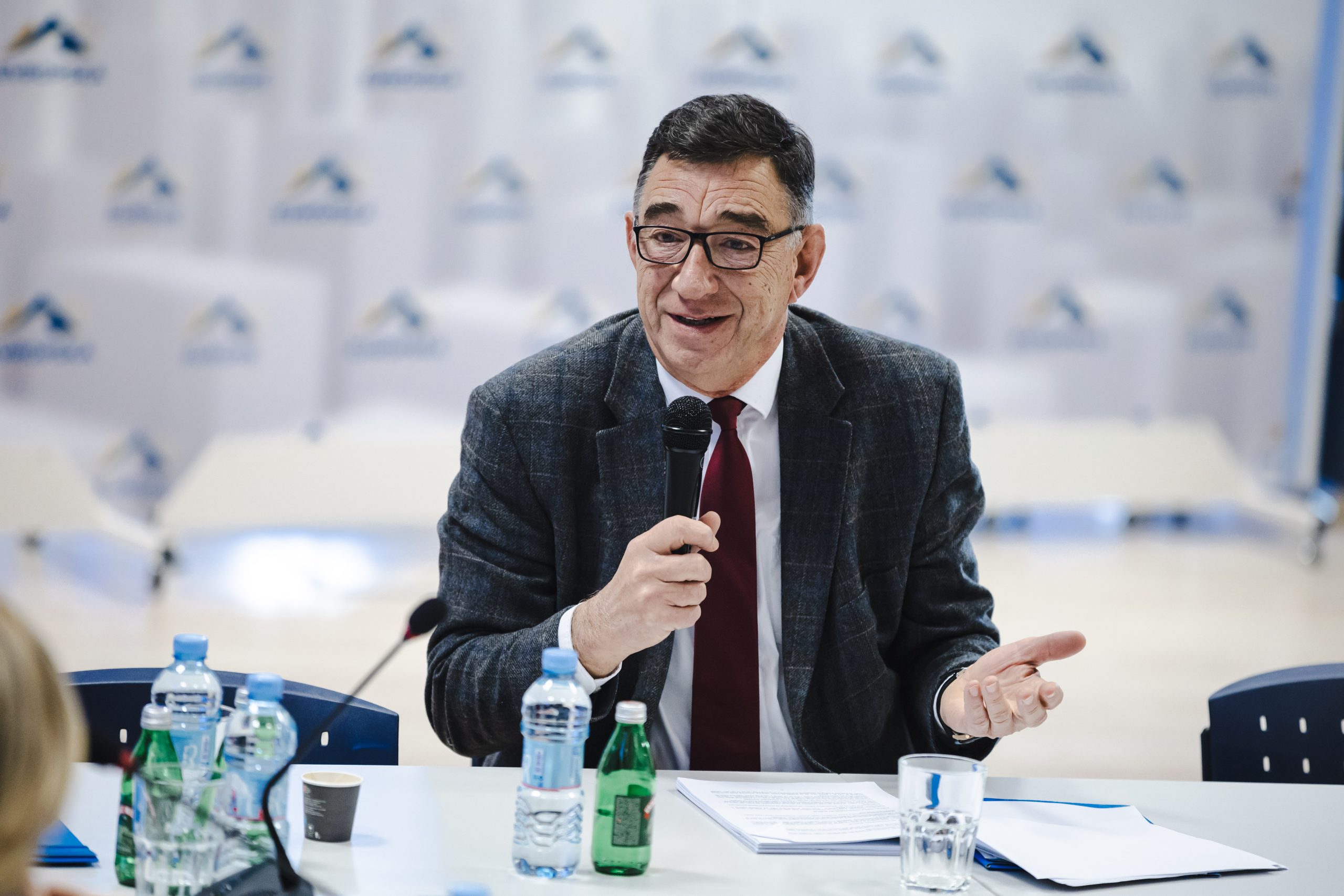








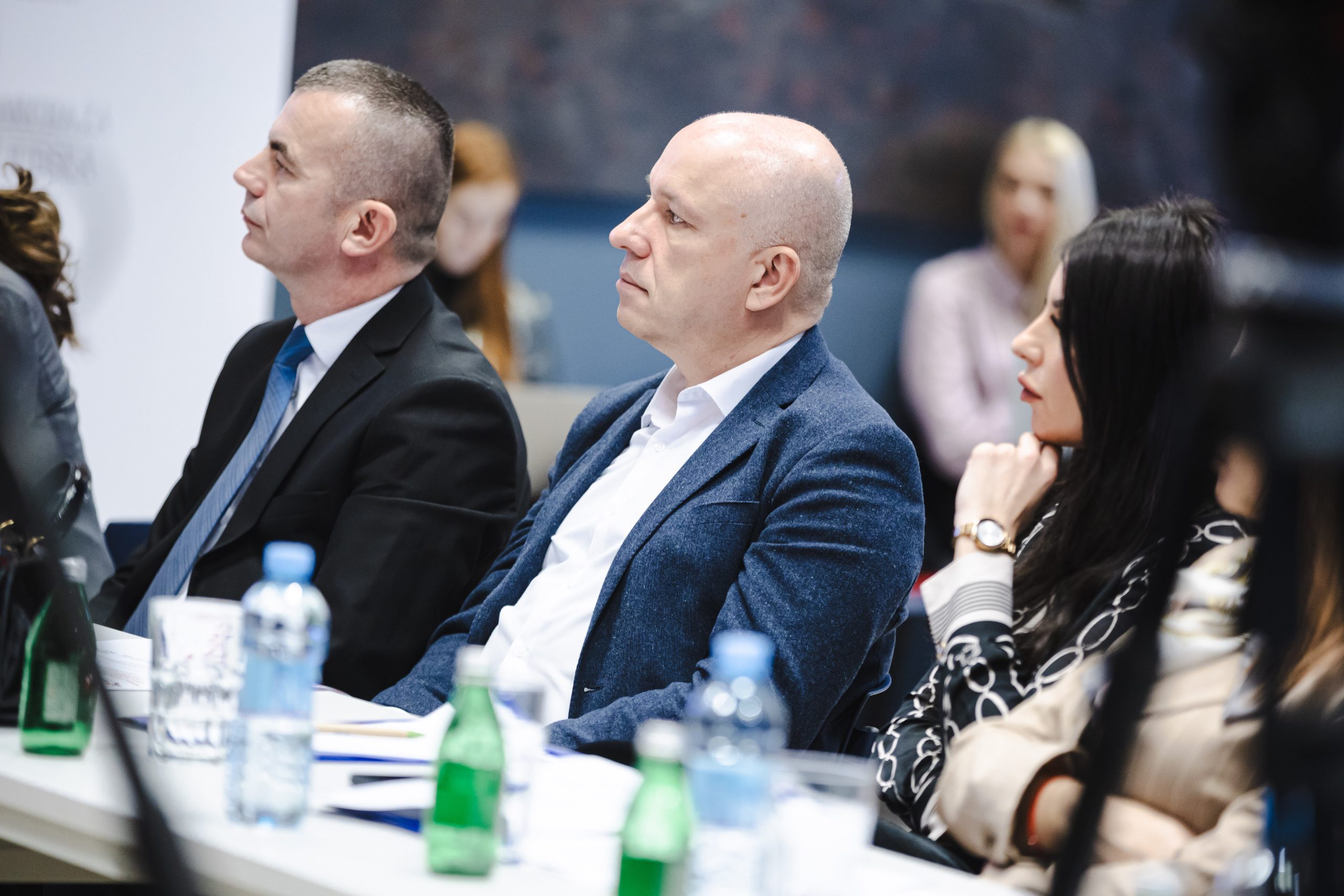



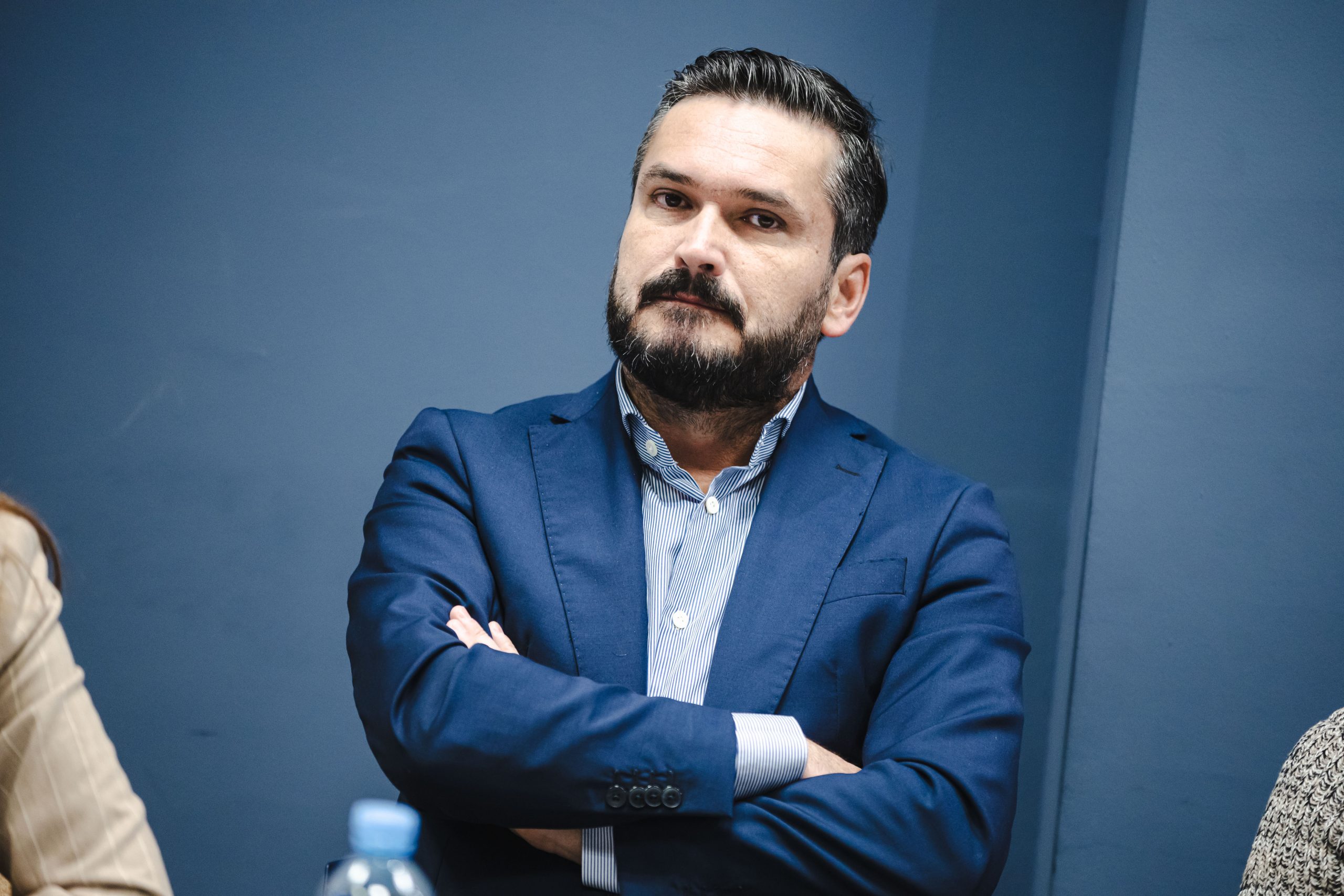







 English
English